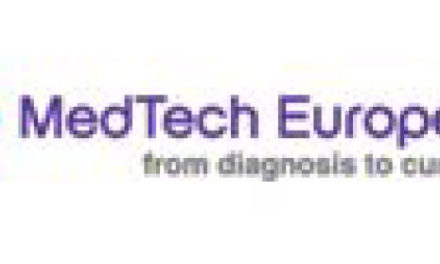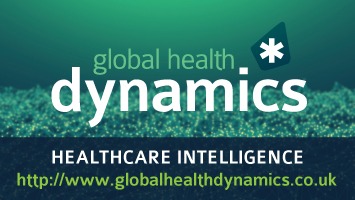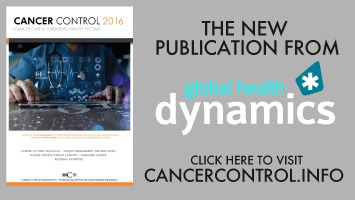Karin Knufmann-Happe, Director General For Health Protection, Disease Control and Biomedicine, Federal Ministry of Health, Germany
In 2015, the German Antibiotic Resistance Strategy, DART 2020, was approved by the Federal Cabinet. At the same time, the Global Action Plan on Antimicrobial Resistance was adopted by the World Health Assembly. The provisions of the Global Action Plan were taken into account in the preparation of DART 2020.
DART 2020 pursues six objectives. Following the One Health approach, all objectives address human and veterinary medicine equally. Main activities in the human health sector in the coming years are the better integration of the outpatient sector, the provision of information on AMR to the public, the further expansion of surveillance systems, international cooperation and strengthening research.
Health systems across the globe are facing major challenges due to the increase in antimicrobial resistance (AMR). In the past, it had been believed that the discovery of penicillin and the use of antibiotics would wipe out bacterial infections; however, for a number of years now we have observed a worldwide increase in AMR in both human and veterinary medicine.
Infections that are triggered by resistant bacteria are more difficult to treat and can sometimes no longer be treated at all. Because of the limited treatment options, longer stays in hospital and also the working time lost, AMR is not only placing a burden on the health systems – it is also causing considerable damage to the economy. The World Economic Forum now counts AMR as one of the greatest risks to the world economy. It is forecast that costs will rise due to the treatment of resistant infective agents and that morbidity and mortality rates will increase in the next few years. The health and economic consequences therefore call for measures to be taken on all levels – regional, national and international.
In 2008, Germany – after recommendations at European level – developed the German Antibiotic Resistance Strategy, DART. The Strategy, which was developed jointly by the Federal Ministry of Health and the Federal Ministries of Food and Agriculture and of Education and Research, represents a common concept for the reduction of AMR. With the implementation of DART, important measures were initiated and structures developed that form the basis for subsequent activities. These include, for example, the development of an Antibiotic Resistance Surveillance system at the Robert Koch Institute, the establishment of Regional Networks to improve collaboration between the relevant players in a region and the launch of an Antibiotic Stewardship training programme.
In 2011, the Commission on Anti-Infectives, Resistance and Therapy (ART) was set up at the Robert Koch Institute. In addition to defining standards for diagnosis and anti-infective therapy in line with the latest developments in medical science, it initiates, in close collaboration with the Association of the Scientific Medical Societies (AWMF), the development of recommendations and guidelines on antibiotic therapy. Like the recommendations of the established Commission for Hospital Hygiene and Infection Prevention (KRINKO), the recommendations of the ART Commission do have a binding character. Furthermore, the heads of medical facilities are now obliged to record data on AMR and antibiotic consumption and to evaluate these on a regular basis.
DART 2020
In 2015, the contents of DART were reviewed and adapted to the current situation in Germany. DART 2020 was approved by the Federal Cabinet in May 2015 (1). At the same time, the Global Action Plan on Antimicrobial Resistance of the World Health Organization (WHO) was adopted by the World Health Assembly (WHA) (2). The provisions of the Global Action Plan were taken into account in the preparation of DART 2020.
DART 2020 pursues six objectives aimed at combating the development and spread of antibiotic resistances:
- Strengthening the One Health approach nationally and internationally;
- Recognising changes in resistance at an early stage;
- Retaining and improving therapy options;
- Breaking chains of infection early and avoiding infections;
- Raising awareness and strengthening skills;
- Supporting research and development.
The main focus is on cross-sectoral cooperation in human and veterinary medicine. In order to pursue the One Health approach effectively, all the objectives of DART 2020 address human and veterinary medicine equally. An interim report on the status of implementation was published for the WHA in 2016 (3).
The main activities in the human health sector in the coming years are the better integration of the outpatient sector, the provision of information to the public, the further expansion of surveillance systems as the basis for specifically tailored activities at local, national and global level, international cooperation and increasing research and development of new antibiotics, alternative therapies and diagnostic methods.
In Germany, around 85% of antibiotics are prescribed in the outpatient sector. This sector is thus particularly important if long-term improvements are to be made in the appropriate use of antibiotics. This affects, firstly, training opportunities that take the needs of the outpatient sector into account, but also involves measures for the increased use of diagnostic methods. In addition, a better coordination of the relevant players in a region is necessary. In Germany, the Regional Networks play a major role in this context. In the Reginal Networks, hospitals, general practitioners, retirement and nursing homes come together under the coordination of the public health service. The aim is to adopt a joint approach and coordinated measures which take the regional situation into account in order to prevent the occurrence and further spread of multiresistant pathogens. At the same time, the networks help to improve communication between the various players. One of the aims of DART 2020 is to further expand these Networks.
The use of antibiotics in the human sector in Germany is in the bottom third in a European comparison. However, broad-spectrum antibiotics are prescribed relatively frequently. For this reason, German activities so far have concentrated primarily on enhancing the competence of medical staff and thus improving prescription quality. Informing patients more effectively can also help to bring about a more appropriate use of antibiotics. Antibiotics are also prescribed because patients ask for them or doctors feel that this is what their patients want. By increasing the awareness of both sides it is possible to counter the inappropriate use of antibiotics. The increased provision of target group-specific information on antibiotics was therefore anchored firmly as a measure in DART 2020.
By 2020, the established surveillance systems for AMR and the use of antibiotics are to be further expanded. To support local Antibiotic Stewardship programmes, research is currently being carried out into how such data can be made available in future to medical facilities in integrated form. In addition, Germany is also participating in the first phase of the implementation of the Global Antimicrobial Resistance Surveillance System (GLASS) developed by the World Health Organization.
International collaboration
National measures alone are not enough to reduce AMR. For this, international, cross-sectoral collaboration is necessary. The Global Action Plan on Antimicrobial Resistance provides the framework for the measures required at national, regional and global level. Together with the Political Declaration of the United Nations (4), which was adopted at the High Level Meeting on AMR in September 2016, it represents the central reference document for the coming years. The timely implementation of the Global Action Plan is crucial for long-term success in fighting AMR.
Another focus of German activities is on international collaboration and supporting partner countries in implementing the Global Action Plan. In many cases, not even the necessary laboratory capacities for pathogen diagnosis are available. However, these are the prerequisite for a functioning surveillance system. Data on the spread of resistances from these systems are needed in order to be able to carry out interventions as specifically as possible and to make the best use of limited resources. International partnerships could help to build up these capacities.
One initiative that is dedicated to the development of these capacities is the Action Package AMR of the Global Health Security Agenda (GHSA). Germany, along with the UK, Sweden, the Netherlands, Canada and Japan, has taken over the “Co-Lead” of the Action Package. The Action Package serves as a platform for the exchange of experience and provides support in the implementation of the Global Action Plan.
In addition, Germany works bilaterally with partner countries. Through the Global Health Programme of the Federal Ministry of Health, projects aimed at combating AMR predominantly in Africa and Southeast Asia have been supported since May 2016. Another example of German bilateral collaboration is the cooperation with Turkmenistan. This involves measures to prevent hospital-acquired infections and to record the use of antibiotics in hospitals. However, through the financial funding of projects of the WHO Regional Office for Europe, Germany also supports non-EU countries within the region of Europe with the development and implementation of national action plans, thus helping to strengthen global capacities.
As part of its presidency, Germany made the global health problem of AMR a topic for the G7 for the first time. In 2015, in the Berlin Declaration on AMR (5), the G7 nations agreed to develop or review national action plans, to slow the spread of AMR through increased preventive and hygiene measures, to maintain the effectivity of antibiotics for as long as possible by using them appropriately and to boost research and development of new antibiotics, alternative therapies and rapid diagnostic tests. Examples of best practice from the G7 on the relevant thematic areas have been published in order to provide an opportunity for learning from each other and to support the implementation of the Global Action Plan.
Following the German presidency, the subject of AMR was picked up both by the Japanese G7 presidency (6) and by the Chinese G20 presidency (7). The respective declarations include areas of action that can only be carried forward decisively through cooperation and highlight the need for action both in relation to the development of incentive mechanisms to increase research and development of new antibiotics as well as the responsible use of antibiotics, taking access to antibiotics into account. The topic was also given a major political boost with the High Level Meeting alongside the UN General Assembly in September 2016 in New York.
Following on from these international discussions and developments, Germany is continuing to carry forward the topic of AMR within its G20 presidency in 2017. In particular, the prevention of infection and the appropriate use of antibiotics – taking into account the One Health approach in both human and veterinary medicine – along with incentive mechanisms to enhance research and development of new antibiotics, alternative therapies and rapid diagnostic tests are to be further discussed and joint measures are to be initiated.
Incentives for research and development of new antibiotics
The development of resistance is a natural process which is accelerated by the inappropriate use of antibiotics. Because of the increase in AMR, an ever-reducing number of effective antibiotics is available for the treatment of bacterial infections. There is therefore a need for antibiotics with new mechanisms of action.
No new active drug classes have been discovered since the middle of the 1980s. Most antibiotics that have been introduced since then are chemical modifications of known antibiotic classes or new classes which are based on discoveries dating back 30 years and more. This is due, firstly, to the fact that the development of new drug classes is becoming increasingly challenging. Secondly, large pharmaceutical companies have increasingly withdrawn in recent years from researching into and developing new antibiotics. The likely profits for the pharmaceutical companies are considerably less than they are, for example, for chronic diseases. Another contributory factor is that antibiotics should be used as rarely as possible in order to continue to be effective. Incentive mechanisms to solve this structural problem are therefore being discussed.
On the initiative of the German Federal Government, since 2015, representatives from industry, science and politics have been discussing questions relating to the provision of medicines and Germany as a pharmaceutical location in the national “pharmaceutical dialogue”. The problems of research and development of new antibiotics have been examined in a sub-working group on antibiotics. Recommendations from the sub-working group have been picked up by the dialogue partners and concrete measures have been incorporated into the agreements published in April 2016. For this, statutory regulations have been developed, for example, which take the particular characteristics of antibiotics into account in determining prices.
International collaboration is required to solve the problem, however. A report from Partnerschaften Deutschland, The Boston Consulting Group and TU Berlin, “Breaking through the Wall – Supporting research and development of antibiotics in science and industry”, which was prepared as part of the German G7 presidency in 2015, identified 10 levers which could be used to boost antibiotic research and development (8). These include, for example, the development of target product profiles, the establishment of a research fund to support basic research, improving the authorization conditions and the closer networking of experts.
With the passing of the Berlin Declaration on Antimicrobial Resistance, the G7 health ministers agreed, amongst other things, to examine options for building up product development partnerships for new and urgently required antibiotics, vaccines, alternative therapies and rapid diagnostic testing and to collaborate on this with the World Health Organization and the Drugs for Neglected Diseases Initiative (DNDi). The Global Antibiotic Research and Development Partnership (GARDP), an international initiative established by WHO and DNDi, was launched in May 2016. Its aim is to develop new antibiotics and at the same time to encourage the responsible handling of antibiotics in order to maintain their effectiveness as far as possible. All people are to be ensured fair access to antibiotics when necessary, since in many threshold countries, it is access to high-quality, effective antibiotics in particular that is a significant problem. Germany is supporting the initiative financially.
To support the networking of experts, the G7 health ministers also agreed in 2015 that a global network meeting of experts would be organised in 2016. This took place in Berlin in October 2016. Over 130 international experts from the scientific world, the pharmaceutical industry, human and veterinary medicine, the regulatory authorities, the European Union and international organizations such as WHO and the World Organisation for Animal Health (OIE) met together. In four workshops, strategies relating to improving innovations for researching and developing antibiotics, the use of antibiotics at the threshold between human and veterinary medicine and the prioritizing of bacteria by WHO as the basis for research and development were discussed, taking into account the One Health approach. In the fourth workshop, GARDP presented projects initiated by product development partnerships on topics such as gonorrhoea and sepsis in new-borns.
Furthermore, in 2016, the G7 health ministers agreed in Japan to work towards an increased harmonization of authorization conditions for new antibiotics. There have already been a number of meetings on this between the European Medicines Agency (EMA), the US Food and Drug Administration (FDA) and the Japanese Pharmaceuticals and Medical Devices Agency (Pmda).
Prevention of infections
Prevention of infections and the maintenance of the effectiveness of antibiotics are, in Germany’s opinion, major elements in combating AMR at national and also global level, especially since, even if an early agreement is reached on the use of particular incentive mechanisms, a considerable period of time may occur until new antibiotics are ready for marketing.
At national level, the recommendations of the Commission for Hospital Hygiene and Infection Prevention (KRINKO) are important pillars in the prevention of hospital-acquired infections. These recommendations are not always completely implemented in the facilities locally. This is where, for example, the provision of financial support for the recruitment of qualified hygiene staff within the Hygiene Promotion Programme comes into play. In addition, within a particular funding focus on “Antibiotic resistances and hospital-acquired infection”, obstacles to the implementation of recommendations are examined and solution strategies developed.
Germany can also benefit from the implementation strategies of other countries. The prevention of infection was therefore one of the main focuses within the Second Patient Safety Summit, which was held in Germany in March 2017. The avoidance of infections was discussed in particular within the context of hospital-acquired infections and sepsis but also with a view to reducing the need for the use of antibiotics and thus the prevention of AMR. Examples of best practice were presented within a workshop, along with approaches to the transferability of (national) recommendations on the prevention of infection and to the strengthening of patient participation.
Conclusions
T he fight against AMR calls for a combination of interconnected measures. The German Antibiotic Resistance Strategy, DART 2020, brings together the necessary activities and provides the framework for German activities for combating AMR in the coming years. It covers the use of antibiotics in both human and veterinary medicine and – internationally – in agriculture.
At national level, Germany is able to build on the structures successfully established in past years. However, it is essential to review and if necessary modify the measures to combat AMR consistently. Germany also benefits here from the international exchange of experience. In this context, various forums are consistently used to address particular aspects, develop solution options and thus ultimately contribute to a timely implementation of the WHO Global Action Plan.
Biography
References
2. http://www.wpro.who.int/entity/drug_resistance/resources/global_action_plan_eng.pdf
3. http://www.bmel.de/SharedDocs/Downloads/EN/Publications/DART2020 Interimreport.pdf?__blob=publicationFile
6. http://www.mhlw.go.jp/seisakunitsuite/bunya/hokabunya/kokusai/g7kobe/KobeCommunique_en.pdf




